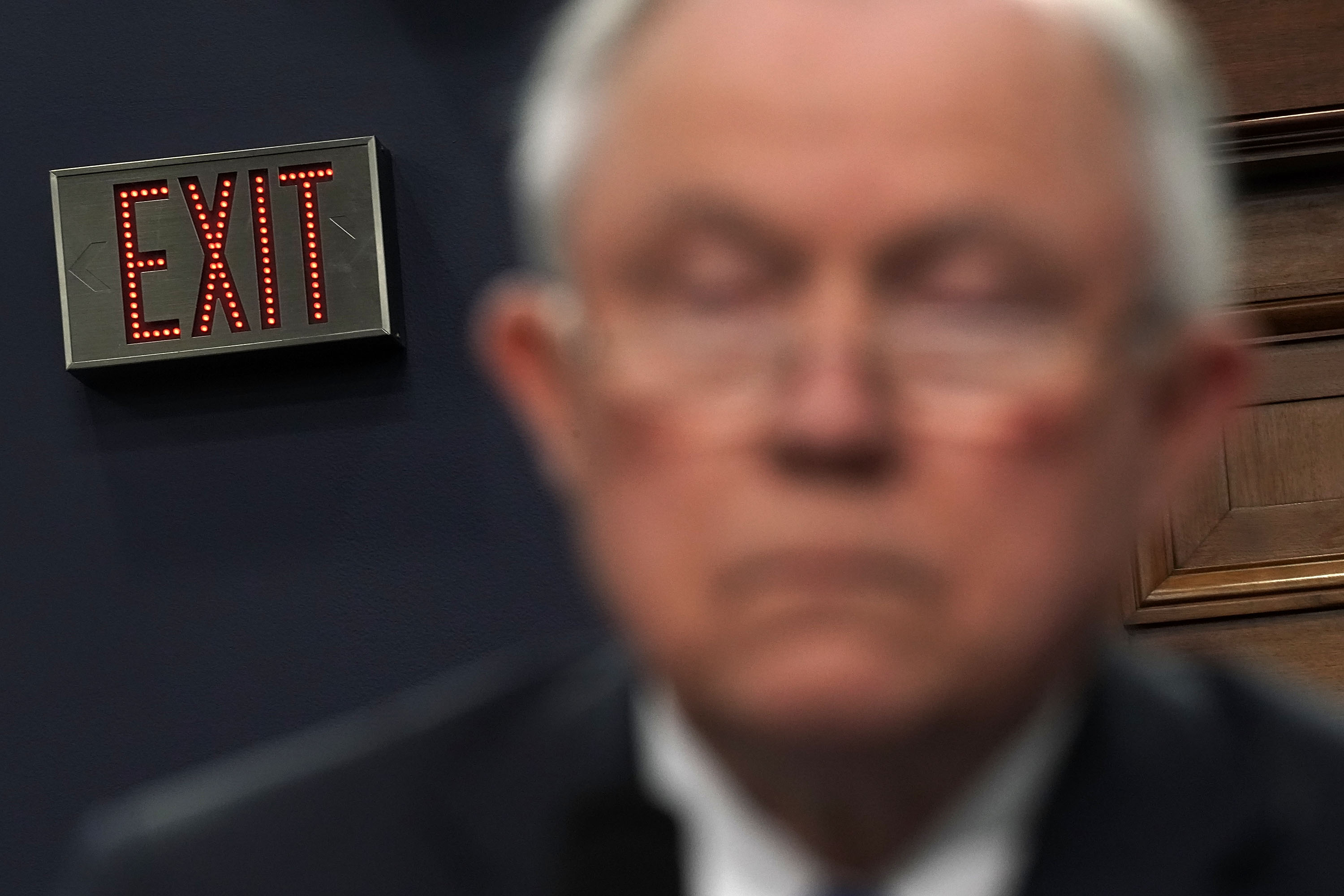Political Report
Jeff Sessions Is Gone, but There Is No Cause to Rejoice
Trump nominates William Barr, who has earned a reputation as a conservative hardliner on criminal justice and immigration issues.
Trump nominates William Barr as attorney general
President Trump’s decision to nominate William Barr to replace Jeff Sessions as attorney general has evoked condemnation from criminal justice, immigration, and civil rights and civil liberties advocates. “It’s hard to imagine an attorney general as bad as Jeff Sessions when it comes to criminal justice and the drug war, but Trump seems to have found one,” according to Michael Collins of the Drug Policy Alliance.
Barr served in George H.W. Bush’s administration as deputy attorney general from 1990 to 1991 and attorney general from 1991 to 1993. He earned a reputation as a conservative hardliner on criminal justice and immigration issues, which still appears to be well-deserved. David Cole, legal director of the ACLU, wrote that, “Barr has, like Sessions, supported aggressive anti-immigrant policies, opposed criminal justice reform, lauded intrusive surveillance of Americans, said Roe v. Wade should be overturned … supported denying civil rights protections to transgender individuals, [and] defended the Muslim ban, Trump’s firing of FBI Director James Comey, and attacks on immigrant rights and free speech.”

German Lopez of Vox looked at Barr’s record and the reactions to his nomination. Congress passed the 1990 Crime Bill during Barr’s time in the Department of Justice and he was an ardent supporter. It was while Barr was attorney general that the Department of Justice issued a report called “The Case for More Incarceration.” The report distills an early-1990s “tough on crime” belief in the efficacy of incarceration in reducing crime and a disdain for non-incarceratory approaches to public safety that has only slowly been disavowed by policymakers, and still commands fealty from the Jeff Sessionses and Tom Cottons of the world. Barr’s note at the beginning of the book proclaims: “[T]here is no better way to reduce crime than to identify, target, and incapacitate those hardened criminals who commit staggering numbers of violent crimes whenever they are on the streets. Of course, we cannot incapacitate these criminals unless we build sufficient prison and jail space to house them.”
Also in Vox, Dara Lind writes that Barr “was a Republican immigration hawk back before it was popular” who “knows how to run the kind of immigration policy Trump likes: one that cracks down first and asks questions later.” He supported the earliest, most sweeping version of Trump’s travel ban in 2017. His tenure as AG came shortly after Congress passed the 1990 Immigration Act, easing the deportation of immigrants with certain criminal convictions. Barr exploited this authority to make deporting people with a criminal record a DOJ priority. Speaking at a town hall in 1992, he said, according to the Los Angeles Times, “We will not tolerate aliens who come here to prey on the American people.”
While AG, Barr vastly increased funds expended for border security, ramped up efforts against so-called “criminal aliens involved in street gangs,” blamed lax immigration enforcement for the unrest following police beating of Rodney King, and pushed for such initiatives as immigration agents at foreign airports and summary deportation proceedings. In a move that foreshadowed Trump’s call to refuse asylum seekers’ entry at the U.S.-Mexico border, the Bush administration—with Barr’s vocal support—initiated a policy to have the Coast Guard intercept all people fleeing by boat from Haiti, including asylum seekers, and immediately return them to Haiti. (The policy was ultimately upheld by the Supreme Court during the Clinton administration on the grounds that the U.S.’s obligation under the principle of non-refoulement—to not return people to countries where they risk persecution— did not apply in international waters.) Barr also ordered the detention at Guantánamo Bay of Haitian people with HIV seeking asylum in the U.S.
Nor does Barr seem to have misgivings about the policies for which he was responsible. Barr’s “thinking hasn’t changed significantly since [his tenure as AG and subsequent efforts to vastly increase incarceration in Virginia], even as the failure of mass incarceration has become too glaring to ignore,” says Tim Lau of the Brennan Center for Justice. Barr was a vocal critic of the bipartisan Sentencing Reform in Corrections Act in 2015, and may very well oppose the current bipartisan First Step Act that President Trump and a majority of Republican Senators support.
Though Barr appears likely to be confirmed, Cole of the ACLU urges that “the Senate, who must confirm Barr, and the U.S. citizenry, who will have to live under him as the nation’s chief law enforcement officer, should be aware of the full range of threats he poses to constitutional law, civil rights, and civil liberties.”
published on Dec. 10, 2018 in the Daily Appeal newsletter
